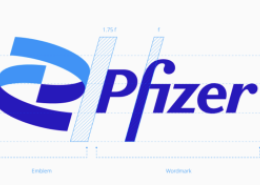Pfizer Receives Approval in the European Union for Nimenrix™ (Meningococcal Group A, C, W-135, and Y Conjugate Vaccine) in Infants Six Weeks of Age and Older
“With this approval, Nimenrix now has the broadest age indication of any conjugate vaccine in Europe against invasive meningococcal disease caused by Neisseria meningitidis serogroups A, C, W-135, and Y, to help protect people as young as six weeks of age”
Pfizer Inc. (NYSE:PFE) announced today the European Commission (EC) has approved an expanded indication for Nimenrix™ (meningococcal group A, C, W-135, and Y conjugate vaccine) for active immunization against invasive meningococcal disease (IMD) caused by Neisseria meningitidis serogroups A, C, W-135, and Y (MenACWY) in infants as early as six weeks of age. Nimenrix is now the first and only MenACWY conjugate vaccine in the European Union (EU) that can be administered from six weeks of age with no upper age limit.
“With this approval, Nimenrix now has the broadest age indication of any conjugate vaccine in Europe against invasive meningococcal disease caused by Neisseria meningitidis serogroups A, C, W-135, and Y, to help protect people as young as six weeks of age,” said Luis Jodar, Chief Medical and Scientific Affairs Officer for Pfizer Inc. “At Pfizer, our expertise in bringing new indications and therapies to people in need helps enable us to continually improve and expand our portfolio of potentially life-saving vaccines.”
The EU approval is based upon results from a Phase 3, open-label, randomized, controlled study (study MenACWY-TT-083) in which the immunogenicity and safety of Nimenrix was evaluated in over 1,000 healthy infants from six weeks of age. Based on clinical evidence, Nimenrix was approved for administration in infants as a two dose primary series, with the first dose given from six weeks of age and with an interval of two months between doses, followed by a booster dose at 12 months. The six confirmatory co-primary objectives of the study were met.
Pfizer’s Meningococcal Vaccines portfolio includes vaccines that help protect against the five most common disease-causing serogroups – A, C, W-135, Y, and B (approvals varying by country) – which can threaten the health of people at various points in their lives. The risk of contracting meningococcal disease varies year to year, by age group and by the country one travels to or lives in.
Indication for Nimenrix in the EU
Nimenrix is indicated for active immunization of individuals from the age of six weeks and above against invasive meningococcal disease caused by Neisseria meningitidis group A, C, W-135, and Y.
Important Safety Information
Nimenrix™ (meningococcal group A, C, W-135, and Y conjugate vaccine) should not be given to anyone with a history of a severe allergic reaction after a previous dose of Nimenrix.
Individuals with weakened immune systems may have a reduced immune response.
The most common adverse reactions were loss of appetite, irritability, drowsiness, pain at the injection site, fatigue, redness at the injection site, and swelling at injection site.
Tell your healthcare provider if you are pregnant, or plan to become pregnant.
Ask your healthcare provider about the risks and benefits of Nimenrix. Only a healthcare provider can decide if Nimenrix is right for you or your child.
You are encouraged to report negative side effects of vaccines to Pfizer. In the United States, to report suspected adverse reactions, contact Pfizer Inc. at 1-800-438-1985 or VAERS at 1-800-822-7967 or http://vaers.hhs.gov.
About Nimenrix (Meningococcal Group A, C, W-135, and Y Conjugate Vaccine)
Nimenrix is a meningococcal ACWY (MenACWY) conjugate vaccine that uses tetanus toxoid (TT) as a carrier protein to help protect individuals against invasive meningococcal disease (IMD) caused by Neisseria meningitidis serogroups A, C, W-135, and Y, which can threaten the health of people at various points in their life. Nimenrix was the first and only MenACWY conjugate vaccine that could be administered from 12 months of age in a single dose with no upper age limit (depending on country)1 and now the vaccine can be administered from six weeks of age and older. Nimenrix is a well-tolerated and immunogenic vaccine that can be administered in adolescents previously vaccinated, in their childhood, with any of the licensed monovalent meningococcal serogroup C conjugated vaccines, including NeisVac-C.
In infants as early as six weeks of age, and up to 12 weeks old, the recommended immunization series consists of two doses (0.5 mL each), with the first dose given from six weeks of age and with an interval of two months between doses. A booster dose is subsequently administered at 12 months of age. In individuals over 12 months of age, a single 0.5 mL dose should be administered. A second dose of Nimenrix may be considered appropriate for some individuals.
Nimenrix was first approved in the EU on April 20, 2012 and is licensed in more than 65 countries, including the countries across the EU, Brazil, Chile, Kuwait, Qatar, Turkey and the UAE.
The EU SmPC is available on request.
About Meningococcal Disease
Meningococcal disease can affect anyone, at any age. The reported incidence of invasive meningococcal disease (IMD) varies by region, ranging from less than 0.5 cases per 100,000 in North America and just under 1 case per 100,000 in Europe, and up to 10-1,000 cases per 100,000 during epidemic years in Africa.2 The majority of invasive meningococcal disease cases worldwide can be attributed to six Neisseria meningitidis serogroups (A, B, C, W-135, X and Y).2 Together serogroups A, C, W-135, Y and B account for 90% of all invasive meningococcal disease.3
Meningococcal disease, while rare, can be unpredictable, and occur quickly and without warning in otherwise healthy individuals.4 It can progress rapidly, and symptoms are difficult to distinguish from other more common infections, with flu-like symptoms such as headache, nausea and vomiting among the earliest signs. The most common clinical presentations of meningococcal disease are meningitis and septicemia.5 The disease can progress from initial symptoms to death within 24 hours, leaving a narrow window of opportunity to deliver life-saving treatment.6,7
Pfizer Inc.: Working together for a healthier world™
At Pfizer, we apply science and our global resources to bring therapies to people that extend and significantly improve their lives. We strive to set the standard for quality, safety and value in the discovery, development and manufacture of healthcare products. Our global portfolio includes medicines and vaccines as well as many of the world's best-known consumer healthcare products. Every day, Pfizer colleagues work across developed and emerging markets to advance wellness, prevention, treatments and cures that challenge the most feared diseases of our time. Consistent with our responsibility as one of the world's premier innovative biopharmaceutical companies, we collaborate with health care providers, governments and local communities to support and expand access to reliable, affordable health care around the world. For more than 150 years, Pfizer has worked to make a difference for all who rely on us. For more information, please visit us at www.pfizer.com. In addition, to learn more, follow us on Twitter at @Pfizer and @Pfizer_News, LinkedIn, YouTube, and like us on Facebook at Facebook.com/Pfizer.
DISCLOSURE NOTICE: The information contained in this release is as of December 19, 2016. Pfizer assumes no obligation to update forward-looking statements contained in this release as the result of new information or future events or developments.
This release contains forward-looking information about Nimenrix™ (meningococcal group A, C, W-135, and Y conjugate vaccine) and an expanded indication in the European Union, including their potential benefits, that involves substantial risks and uncertainties that could cause actual results to differ materially from those expressed or implied by such statements. Risks and uncertainties include, among other things, uncertainties regarding the commercial success of Nimenrix; the uncertainties inherent in research and development, as well as the possibility of unfavorable clinical trial results; whether and when any biologics license applications may be filed in any other jurisdictions for Nimenrix; whether and when regulatory authorities in any other jurisdictions where applications for Nimenrix may be pending or filed may approve any such applications, which will depend on the assessment by such regulatory authorities of the benefit-risk profile suggested by the totality of the immunogenicity and safety information submitted; decisions by regulatory authorities regarding labeling and other matters that could affect the availability or commercial potential of Nimenrix; and competitive developments.
A further description of risks and uncertainties can be found in Pfizer’s Annual Report on Form 10-K for the fiscal year ended December 31, 2015 and in its subsequent reports on Form 10-Q, including in the sections thereof captioned “Risk Factors” and “Forward-Looking Information and Factors That May Affect Future Results,” as well as in its subsequent reports on Form 8-K, all of which are filed with the U.S. Securities and Exchange Commission and available at www.sec.gov and www.pfizer.com.
1 Nimenrix powder and solvent for solution for injection in pre-filled syringe Meningococcal group A, C, W and Y conjugate vaccine. Summary of Product Characteristics. 2016.
2 Halperin SA, et al. Vaccine 2012;30(2):B26–36.
3 Kieny MP, Excier J, Girard M. Research and development of new vaccines against infectious diseases. Am J Public Health. 2004; 94(11): 1931-1935.
4 Poland GA. Prevention of meningococcal disease: current use of polysaccharide and conjugate vaccines. Clin Infect Dis. 2010; 50; S45-S53.
5 Meningitis Research Foundation. Meningococcal meningitis and septicaemia: guidance notes: diagnosis and treatment in general practice, 2014 edition. http//www.meningitis.org/assets/x/50631. Accessed March 12, 2015.
6 World Health Organization. Meningococcal meningitis fact sheet. http://www.who.int/mediacentre/factsheets/fs141/en/. Last updated February 2015. Accessed March 19, 2015.
7 Thompson MJ, Ninis N, Perera R et al. Clinical recognition of meningococcal disease in children and adolescents. Lancet 2006;367:397-403.
Pfizer Inc.
Media:
Dawn Carty, 00353 876711651
[email protected]
or
Investor:
Bryan Dunn, 212-733-8917
[email protected]








